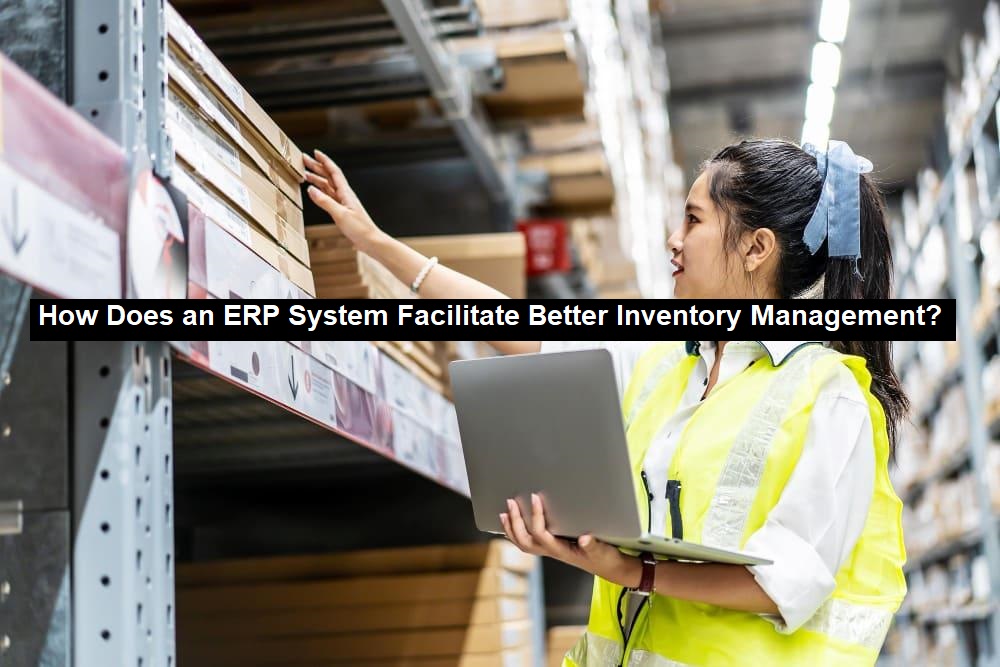Inventory management is an essential component of any enterprise. If the business can efficiently manage the inventory, then its profit will increase. Every company puts tremendous effort into managing its inventory to remove all the hurdles that obstruct profitability. Efficiency in the inventory can be achieved if the data is obtained and well-organized. Data regarding purchases, reorders, shipping, warehousing, receiving, storage, customer support, prevention of losses, stock turnover and many other factors.
All these solutions are available in the enterprise resource planning software. It can manage all the core operations of the business by managing its data efficiently. It has an inventory management module which can manage all the aspects of the inventory seamlessly. This will help the businesses to achieve a competitive advantage as all data is crucial for the business.
ERP for Inventory Management
ERP software is a single solution for businesses to achieve efficiency in all of their operations and functionalities. Due to automation and advanced features in the ERP, the intricate workflow of your business is eased. It integrates all the aspects of the business including inventory, finance, logistics, planning and operations. The real-time features help the business in acquiring accurate data required for the company to make valuable decisions.
Inventory management is also an important module in the ERP which manages all of its functions expertly. The real-time ability will fetch updated data from the inventory to make insightful decisions. It removes all the bottlenecks and ensures that the stocks are at the optimal level. ERP also helps in attaining current market demand to fill up the inventory with the right quantity of materials.
Common Inventory Management Challenges
Inventory management as mentioned earlier is directly linked to the profitability of your business. Enumerated below are some of the challenges of managing inventory:
1. Excess Inventory
Excess inventory is bad for companies that sell seasonal goods. In addition, stocking up excess inventory minimizes liquidity and maximizes overheads. If your business is relying on traditional or manual inventory forecasting, then your inventory will face major shortages.
2. Inventory Shortages
If the inventory is not maintained well, it can face acute material shortages which can impact the business. This will cost the company and will negatively impact your business in terms of customer loyalty towards your business. This scenario will arise when your business doesn’t have a proper inventory management system.
3. Dead Stock
Deadstock or obsolete inventory is bad for the business as it refers to the unsold goods stored in the inventory. In the inventory, these unsold goods drain your money and use up the space. If you are following conservative inventory methods to track these goods, most of the time you will fail to get the data of its existence in the inventory.
Read: IT Services: Evolution and Current Landscape
How ERP can Improve Inventory Management?
1. Inventory Planning
ERP has inventory metrics which give accurate historical data which will benefit the business to plan for inventory materials. If the inventory is well-planned with insightful data, then it will help in increasing customer satisfaction.
2. Inventory Tracking
In order to manage inventory efficiently, you should know how to manage the stocks. All the components of the business are integrated, hence to manage the inventory proficiently, all the other departments of your business have to be coordinated with the inventory. ERP can integrate your company’s complete processes seamlessly ensuring that data flows freely among them. All the users get easy access to inventory data which is stored in ERP’s centralized database.
Furthermore, data from the inventory can be tracked by any user in real-time. This will give you an insight into the stock levels. You will come to know the quantity of the raw materials to be stocked up or the number of finished goods which are unsold. ERP helps you to manage the inventory stocks efficiently which will help out in easing the task of the financial report as well.
3. Automate all Inventory Functions
Manually managing and maintaining numerous spreadsheets for the inventory is a tedious task. It consumes a lot of time and causes errors which will impact the profitability of the company. ERP is the solution to eliminate all the spreadsheets and errors. It automates all the inventory functions giving room for fewer errors. With better visibility, it is possible to get inventory updates anytime which will be helpful for the staff to maintain the right inventory levels.
4. Forecasting, Restocking and Managing Excess Inventory
ERP can manage all the functions of the inventory seamlessly as it can sync expertly with the rest of the organization. This will help the employees to know about the long-lead products. If you come to know about the long lead time during the design phase of the product, you can be aware of the time to order the item and make sure that it is delivered on time.
If you have real-time updates on the stock levels, it will be easier for you to eradicate excess inventory. Plus, it will also help in replenishing the inventory. Furthermore, it will notify the managers to stock up the inventory when it is necessary to fill up the stocks. Suppose, suddenly if you require stocks, manufacturers will face enormous freight charges if it is not planned systematically. Hence, ERP notifies the manufacturers ahead of a demand.
5. Save Money
Achieving efficiency in managing the inventory always means that you can save costs and reduce wastage. ERP can manage all the functions of the inventory thereby reducing the workload and minimizing costs. Automation helps in analyzing the wastage and it lowers manual labor which will help in achieving error-free data. With an ERP system, you can collect better-quality inventory data which will benefit the overall health of the business.
Final Takeaway
ERP solution is the right choice you can make to manage your inventory. It provides real-time insights which will help in better planning, standardize the data quality and reduce the manual workload. Significantly, it helps in maintaining the right amount of stock levels. It will notify the manager when the stock level goes below the threshold. Deploy ERP for the business if you want all the aspects of your business to sync well and seamlessly function.



